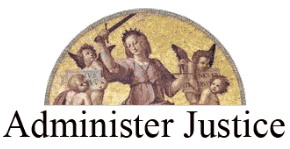How Can I Use Witness Testimonies after an Illinois Car Accident?
 Even with fewer citizens commuting to and from their jobs on a daily basis because they are working remotely, Illinois roadways have seen an increase in vehicle-related fatalities recently. After months of staying at home due to the coronavirus pandemic, many people are taking cross-country road trips instead of traveling by airplane. In some cases, reckless actions such as speeding or disregard for traffic laws have led to an increase in car accidents with injuries. Victims of automobile crashes may be confused and unsure of what to do in the aftermath of a crash. Seeking immediate medical attention for any injuries should be your first priority. Your next step should be talking to witnesses who saw the incident unfold. An eyewitness who provides a statement to the responding officer can offer a neutral third-party perspective of the collision and why it may have occurred.
Even with fewer citizens commuting to and from their jobs on a daily basis because they are working remotely, Illinois roadways have seen an increase in vehicle-related fatalities recently. After months of staying at home due to the coronavirus pandemic, many people are taking cross-country road trips instead of traveling by airplane. In some cases, reckless actions such as speeding or disregard for traffic laws have led to an increase in car accidents with injuries. Victims of automobile crashes may be confused and unsure of what to do in the aftermath of a crash. Seeking immediate medical attention for any injuries should be your first priority. Your next step should be talking to witnesses who saw the incident unfold. An eyewitness who provides a statement to the responding officer can offer a neutral third-party perspective of the collision and why it may have occurred.
Illinois Liability Laws
In any personal injury case, a victim must prove who was liable or at fault for the accident. The state of Illinois follows a fault-based system, sometimes referred to as a tort liability system. This means Illinois motorists who are responsible for causing a crash are responsible for paying for any damages related to the accident.
All Illinois drivers must carry auto insurance that meets the state’s minimum requirements for liability coverage. Anyone who is hurt in a vehicle collision typically files a claim against the at-fault driver’s insurance policy. However, insurance companies are known for minimizing the payouts for injury victims. In certain cases, a driver or passenger could suffer serious injuries that require a lengthy hospital stay, surgery, or rehabilitation. That is why it is important to speak to an experienced personal injury attorney about how to go about filing a claim for your pain and suffering.
Gathering Evidence to Prove Fault
It can be difficult to rely solely on your memory to recount the details of an auto accident due to many reasons. You may have been in shock immediately following the impact, or you could have even lost consciousness for a period of time. Depending on your location, there may be pedestrians or people in other vehicles nearby who saw what transpired. These witnesses may be able to help you gather valuable information so you can prove fault for your crash, especially if they saw the events that led up to the accident, including if another motorist was engaging in reckless behavior, such as speeding, texting while driving, or failing to yield or stop.
It is important to ensure that a witness is credible to help your case. The following are characteristics of a trustworthy eyewitness:
- Has no prior criminal record
- Has a good memory
- Has near-perfect eyesight
- Does not drink alcohol or take drugs
- Does not take prescription medicine that can alter his or her perception
- Has no interest in the outcome
Contact a Bloomingdale Personal Injury Attorney
The aftermath of a vehicle collision can be chaotic and stressful. It may be difficult to think clearly, but there are a few important steps to take, including talking to eyewitnesses. A third party testimony can clarify details of the crash when determining who is liable for causing it in the first place. At the Law Offices of David W. Clark, P.C., we have more than 20 years of experience helping injury victims pursue compensation for their damages, whether it be due to vehicle repairs or lost income. P.C. Our dedicated DuPage County car accident lawyers will fight for your rights every step of the way so you can move on with your life. To schedule your free consultation, call us today at 630-665-5678.
Sources:
https://www.ilga.gov/legislation/ilcs/fulltext.asp?DocName=062500050K11-401
https://www.ilga.gov/legislation/ilcs/ilcs3.asp?ActID=2375&ChapterID=67
WE DON'T GET PAID UNTIL YOU DO!
Free Initial Consultation
630-665-5678
Our attorneys aggressively pursue every avenue to ensure that you are properly compensated for your pain and suffering, medical costs, or lost wages as soon as possible. You pay nothing until you receive the judgment or settlement you deserve.











